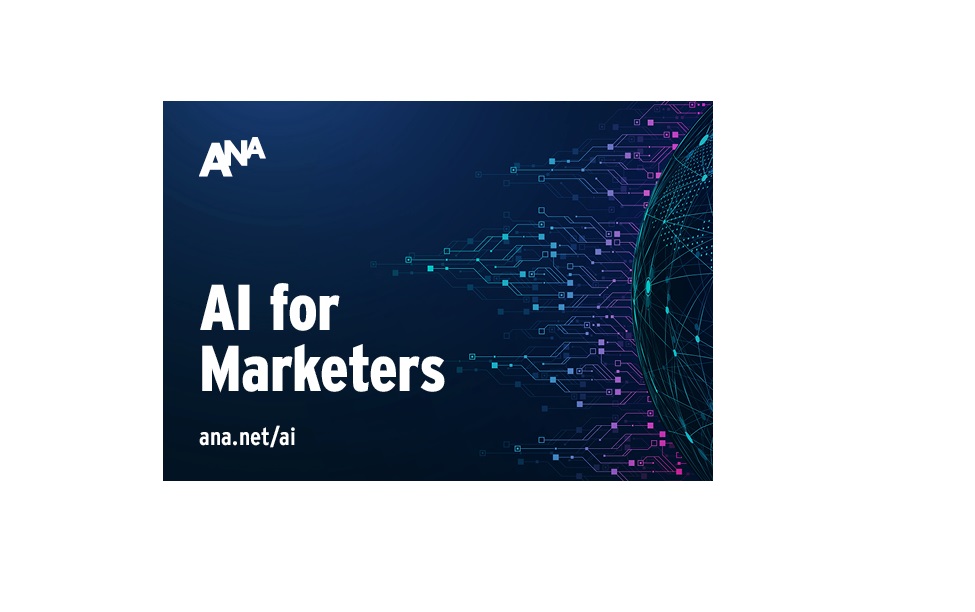Three Ways AI is Becoming Marketing-Ascendant

Michael Donnelly is an Executive Vice President at the ANA, where he leads the AI, Marketing Technology, and Marketing Futures practices. Previously, Mr. Donnelly served in senior leadership roles in marketing, communications, sales, and IT for some of the world’s most recognized brands within Johnson & Johnson, The Coca-Cola Company, and Mastercard. He shares his most significant take-aways from the ANA's 2024 AI conference.
Over 300 participants gathered earlier this month for the ANA AI for Marketers Conference, a crucial industry event focused on examining AI’s rapidly evolving role in the marketing industry.
From the insights to the creativity, from the theoretical to the actual real-world case studies shared, three overarching themes emerged.
Human-AI Collaboration
Speakers emphasized the need to view AI not as a competitor or replacement for human intelligence, but as a powerful tool that can augment and elevate our own capabilities. As CognitivePath's Founder Greg Verdino said, "AI is your assistant, not your boss."
Lu Cotterill, Global Senior Director of Marketing Insight at Kellanova, emphasized the importance of putting people at the center of all AI efforts. For this to happen, we must trust that the AI is accurate, honest, and unbiased, aka Responsible AI. Traci Spiegelman, Vice President of Global Media for Mastercard, shared details on how they help small businesses combat AI bias with a chatbot built off Mastercard’s inclusive data, in addition to licensed data from select partners such as Group Black, TelevisaUnivision, and Newsweek. The chatbot functions as a mentor to entrepreneurs and small businesses, providing them with counsel that is relevant to their specific needs.
Generative AI's Creative Potential
For decades, we have heard about the promise of 1-to-1 marketing, but complexity and the need for investment have been enormous hurdles for many companies. Chris Duffy, Head of GenStudio at Adobe, told the audience that complexity may be just what AI does best, sharing some of the latest AI-driven creative tools and capabilities that could help us harmonize ideation, creation, production, and activation.
Shelley Palmer, CEO of The Palmer Group, took attendees through the fundamental shift from curation to generation, calling on the audience to remember the date that OpenAI released ChatGPT, November 30, 2022. “Post this date, it is less and less likely that what you are seeing is created by humans.”
Joe Rivas at IBM inspired the crowd, noting that AI’s purpose is to not just drive efficiency, but to “fundamentally” wake up creative.
Challenges
Along with AI’s positive potential, marketers cannot ignore questions surrounding IP, copyright, and societal influence. A panel on ethical and legal considerations, led by the ANA’s Executive Vice President and Head of Government Relations, Chris Oswald, with participation by Stu Ingis, Partner and Chairman of Venable LLP, and Jason Koye, General Counsel North America and Worldwide Privacy Officer, Omnicom Media Group, discussed each of these topics. From the EU to the Oval Office to the Halls of Congress, the FTC, and individual states, legislation and standards will have a profound impact on our day-to-day use of AI. We learned that there are likely to be different standards depending on the risk involved with specific applications. Sensitive information, such as health AI, will require strict standards, while other use cases may be less restrictive. Unlike the early Internet days when the government was slow to respond, 31 states have already introduced over 200 bills related to AI.
Upskilling for an AI-Enabled Future
Speakers widely agreed that reskilling marketing teams will make or break AI's potential impact. As Josh Campo, CEO of Publicis’ Razorfish, boldly stated in a one-to-one with 4A’s CEO Marla Kaplowitz, "The machines won't take your job - the people who know how to use them will."
Data mastery is a prerequisite, with CognitivePath's Principal Analyst and Co-founder Geoff Livingston calling it "the gold" that powers effective AI solutions. Erica McCoy, Resonate’s CMO, emphasized the critical role of predictive AI in marketing, specifically its capacity to leverage vast amounts of data to drive revenue and enhance brand development. She explained that while brand awareness is essential, the goal for marketers is to increase revenue, and predictive AI is a potent tool for achieving a positive financial outcome.
This brief summary only scratches the surface of the valuable research and insights shared at the Conference. To learn more, visit ANA.net/AI.
Posted at MediaVillage through the Thought Leadership self-publishing platform.
Click the social buttons to share this story with colleagues and friends.
The opinions expressed here are the author's views and do not necessarily represent the views of MediaVillage.org/MyersBizNet.

